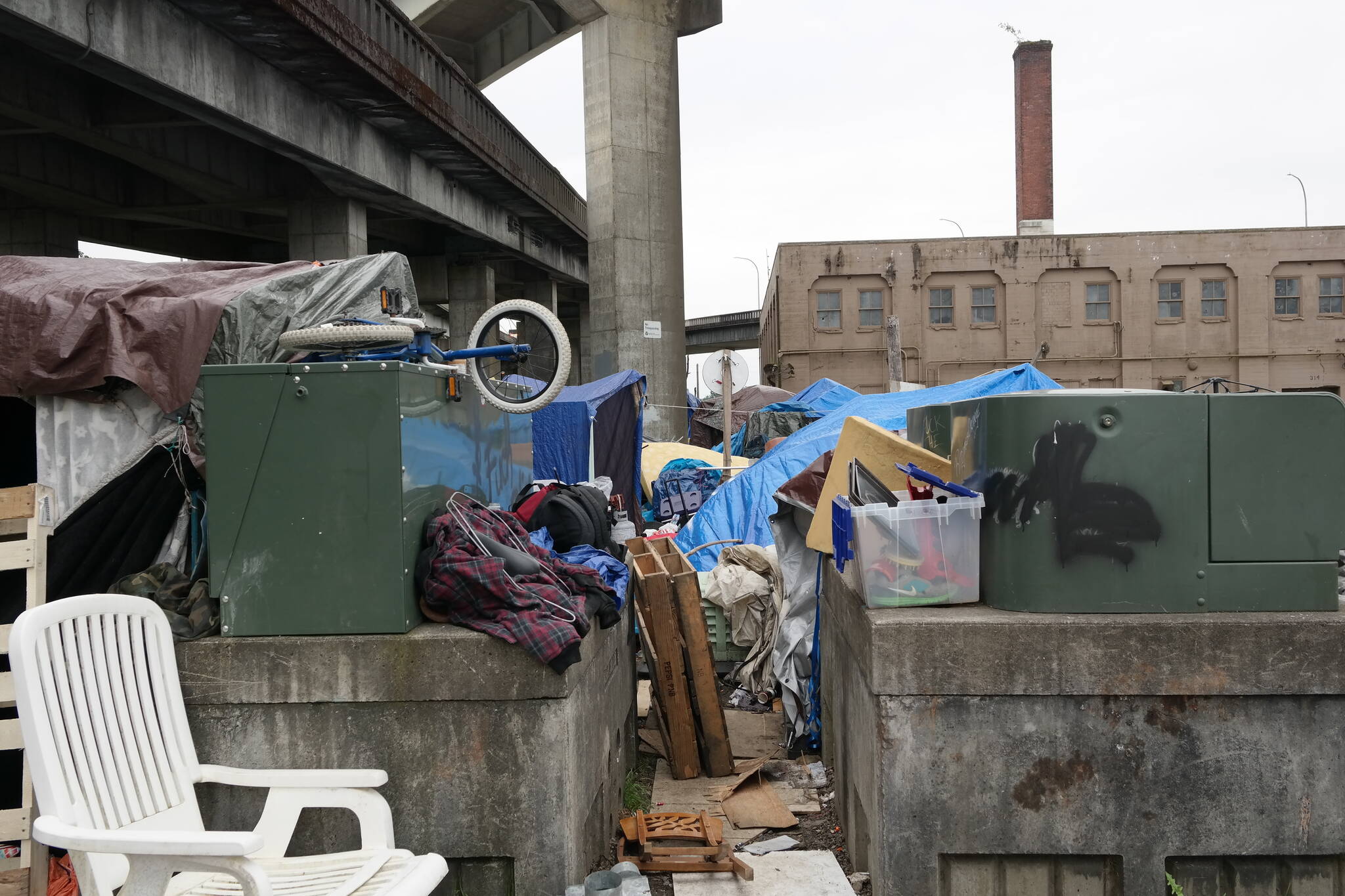Grays Harbor County Commissioners tentatively expressed interest in a cold weather shelter for the 2022-23 season at a special workshop on Tuesday, June 14.
“I think having something that’s seasonal, November to March, is certainly something we should look at,” said Commissioner Vickie Raines.
Tuesday’s workshop was the second of a two-part series in conjunction with Grays Harbor County Public Health to address challenges plaguing past iterations of the cold weather shelter and to determine the best actions moving forward.
The county funded three shelter services in the 2021-22 winter season: a congregate shelter in Westport, a congregate shelter in Aberdeen, and hotel/motel vouchers through the Coastal Community Action Program.
According to data presented by Grays Harbor County Public Health, the Westport and Aberdeen congregate shelters served 83 and 96 people, respectively. In Aberdeen, those seeking shelter stayed an average of 31 nights.
County-funded programs were key to providing shelter during particularly cold days or days when low temperatures were paired with other weather conditions, such as rain and snow. During the 2021-22 season, there were 28 total days where the temperature dropped below 35 degrees, including a two-week time span where temperatures did not rise above 40 degrees.
“The seasonal weather may not necessarily be life threatening, but it’s the combination of temperatures that get into a cold range, as well as precipitation, with folks who are very vulnerable and have recurring health issues, like diabetes and things like that. Those conditions can really put a strain on an individual’s health and that can mean people access other extended services like EMS (emergency medical services),” said Healthy Places Program Manager Cassie Lentz.
Public Health conducted a variety of stakeholder meetings to analyze the 2021-22 cold weather shelter. Their interviews found that there was a consensus among first responders, health care providers, members of the faith community, and service providers that the shelter reduces death and suffering. First responders in particular noted a reduction in EMS and emergency room services due to the shelter.
Law enforcement also expressed concerns that in the absence of a cold weather shelter, crime may increase in the winter months as people seek any form of indoor protection. The shelter also reduced the number of people sleeping in parks or other illegal spaces.
Despite the benefits to some stakeholders, the shelter poses an issue for others — notably the business community located nearby.
In the five months the Aberdeen cold weather shelter was open, Public Health received 14 complaints. Many of these complaints were regarding loitering around surrounding sidewalks and business doorways in the hours the shelter was closed. Garbage, drug use, and disruptive behavior were also among the complaints.
The interviews also found the faith community strongly believed that while it is the community’s responsibility to provide shelter services, clients must also work toward improving their own lives.
“It’s not that we don’t want some people, but we want the right people. You don’t want to pull down the people inside that are trying to make themselves better by bringing in the stuff they’re trying to stay away from,” said Gary Rowell, CEO of Union Gospel Mission Grays Harbor.
Rules regarding substance use have been a point of contention for commissioners in the past.
In April 2021, Commissioners Jill Warne and Kevin Pine passed on more than $1 million in state and federal funding to build a low-barrier homeless shelter in Aberdeen. The two commissioners declined the funding because the shelter model doesn’t require sobriety.
Despite support by Commissioner Raines, pleas for a low-barrier shelter fell by the wayside again in a commissioner’s workshop on Oct. 26, 2021.
County commissioners indicated on Tuesday that a preferred model for a 2022-23 cold weather shelter would include more targeted guidance for requirements, such as shelter rules and security presence.
“Security is definitely on my list of things we need,” said Commissioner Warne.
Warne also expressed a desire for additional shelter rules, such as limiting access to personal belongings inside the shelter and outlining rules for traffic in and out of the shelter during the night.
Several community stakeholders also expressed the desire for two shelters to allow for the faith community to continue their work within their mission while also providing a secular, low-barrier option.
“I am of the opinion that we really need two models of emergency shelter. We need to have both a zero-barrier shelter and one for those in the midst of a basic human right — the right to be warm in the winter time. They might need to be separate from someone who has an addiction or a mental health issue,” said DeElania Moore, Behavioral Health Navigator for the Hoquiam, Aberdeen, and Cosmopolis police departments.
While the exact nature of this year’s cold weather shelter remains undetermined, commissioners expressed interest in sending out proposal requests in the future. The preferred model also allocates for multiple sites and ongoing funding of hotel/motel vouchers.



